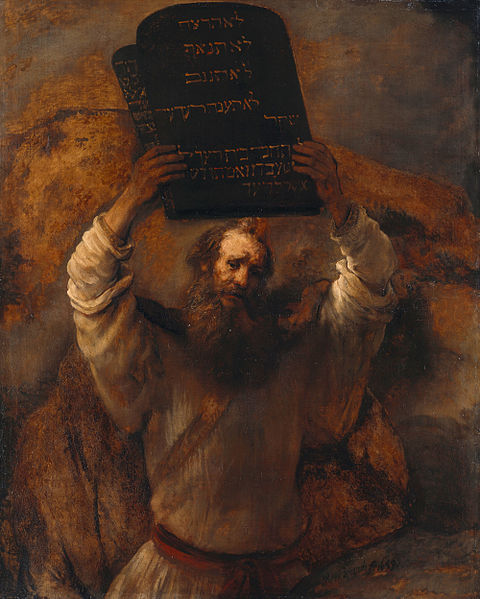Here it is: 10,000 hours of experience running a huge online community, distilled into a 10-minute read. We started our comedy community GAB on ZUG back in the mid-nineties, back when Web communities were still fairly new. While there were plenty of online communities on Usenet and AOL, ours was the first Web-based comedy community, and certainly the funniest.
Over time, our community became extraordinarily successful, generating hundreds of thousands of online conversations, millions of comments, and approximately twelve quintillion laughs. But we made an awful lot of mistakes along the way. For those of you starting or managing an online community of any kind — social media, discussion forum, or Butter Enthusiast Meetup — I want to help you avoid these same mistakes. In that spirit, here’s the guide I wish someone had given us.
You need content to attract a community
In our case, it was the content we were publishing on our comedy site ZUG.com that began to attract the community. You can’t just start a group and expect it to take off; you have to have something to bring in like-minded people, who will then begin to coalesce into a community. This means near- constant content on your Facebook group, or tons of posts on your blog. Quality is important, but quantity even more so.
http://www.youtube.com/watch?v=I3o7NURvtOM&feature=share&list=UUuR04k1rQSyQ-5AdQzzUwnw
You need to relinquish (some) control
Because an online community is made up of people, they will do things you did not expect. If you manage the Tostitos community, don’t expect everyone to show up and do nothing but swap Tostitos recipes. Sooner or later, they’ll start talking about Qdoba, and how someone got sick while eating there, and then it will devolve into food poisoning stories. You have no idea where they’re going to take it, which is what makes online communities so exciting — and so dangerous. In order for the community to grow, you have to allow a very long leash.
You need rules
But you do need a leash, or chaos will ensue. In our case, early community members began staging jihad-like assaults on other message boards. Some members made death threats on other members. Running a community is more like governing than running a website. Sooner or later (hopefully sooner) you need to develop ground rules on what’s OK and what’s not. We eventually developed a list of “The ZUG 10 Commandments” (see below), which were emailed to every new user upon signup. These are excellent ground rules for any online community, and will save you hours of heartache.
You need moderators
For the first few years, we resisted moderation, claiming that we wanted our community to enjoy completely free speech. But completely free speech is only a good idea until someone posts your home phone number at 2 in the morning. Moderation, we came to understand, is a necessary evil. The best moderators come from within the community, have earned the respect of their fellow members, and have a light touch. And if you can afford it, you really need to pay them.
You must rise above the drama
You might think you will not fall victim to this, but it is so easy to get swept up in any online drama: a longtime member who might be underage (gasp!), a member who fooled everyone into believing he was killed in a car crash (shock!), two members who hooked up offline and got pregnant (shock!). Often these are legitimate issues. The paradox is that the more involved you get with a community, the less able you are to exercise good judgment. It is best for the “owners” of the community to be involved enough, but not too much. Easy to say; incredibly difficult to do.
You must create “firm but porous” boundaries
This is not just a slogan for moisturizing cream, but a rule: as they grow, communities develop a natural tendency to shun outsiders. While this protects the group against threats, it also paradoxically makes the group less likely to survive. The best essay on this is “A Group Is Its Own Worst Enemy” by Clay Shirky. You should create hurdles that make it difficult for new users to come in and trash the group — for example, n00bs have limited posting powers until they’ve “earned” the right to post.
Your software should enforce your rules
Moderators are one lever — the other is your community platform itself. When we noticed people routinely posting 50,000 word screeds, we put a 500-word limit into every post. To encourage quality contributions, we created a “trophy” system that rewarded posts that hit a certain threshold of response. But choose your features wisely, brave explorer: some community “features” end up creating more problems than they solve. We never included the ability to edit posts, for example, because you need a permanent record of who said what when — and in real life, when something is said, you can’t take it back — as anyone who’s ever been in a relationship has learned.
Communities are people
Our community affected people’s lives in real ways: our members formed hundreds of real-world friendships. Several couples met on our message board and got married. Members had sex with each other, and often with themselves. The last lesson I did not really learn until the night we shut down our community: the biggest impact we had was the relationships we helped people build between themselves.
Ultimately, that’s what a good online community is all about. It’s not about you, or your brand, or your content: it’s about providing a way for like-minded people to connect with each other. Do that well, and your community will soar.
THE ZUG 10 COMMANDMENTS
1. Thou shalt honor the intelligent joke.
2. Thou shalt respect the community, remembering that there are real people on the other end of thy computer monitor; be thou neither overly offensive nor easily offended.
3. Thou shalt not threaten or flame other members of the community.
4. Thou shalt welcome diversity and new blood.
5. Thou shalt focus on being funny, not on being mean-spirited as a substitute for being funny.
6. Thou shalt not “flood” the board with irrelevant ratings, posts and/or threads, nor shalt thou “invade” other message boards.
7. Thou shalt not post the personal information of other community members or offworlders.
8. Thou shalt also keep thine personal information to thyself, unless thou wanteth thy phone number revealed to millions of others.
9. Thou shalt not “imp” — post only under thine own user ID.
10. Thou shalt not create multiple accounts.

